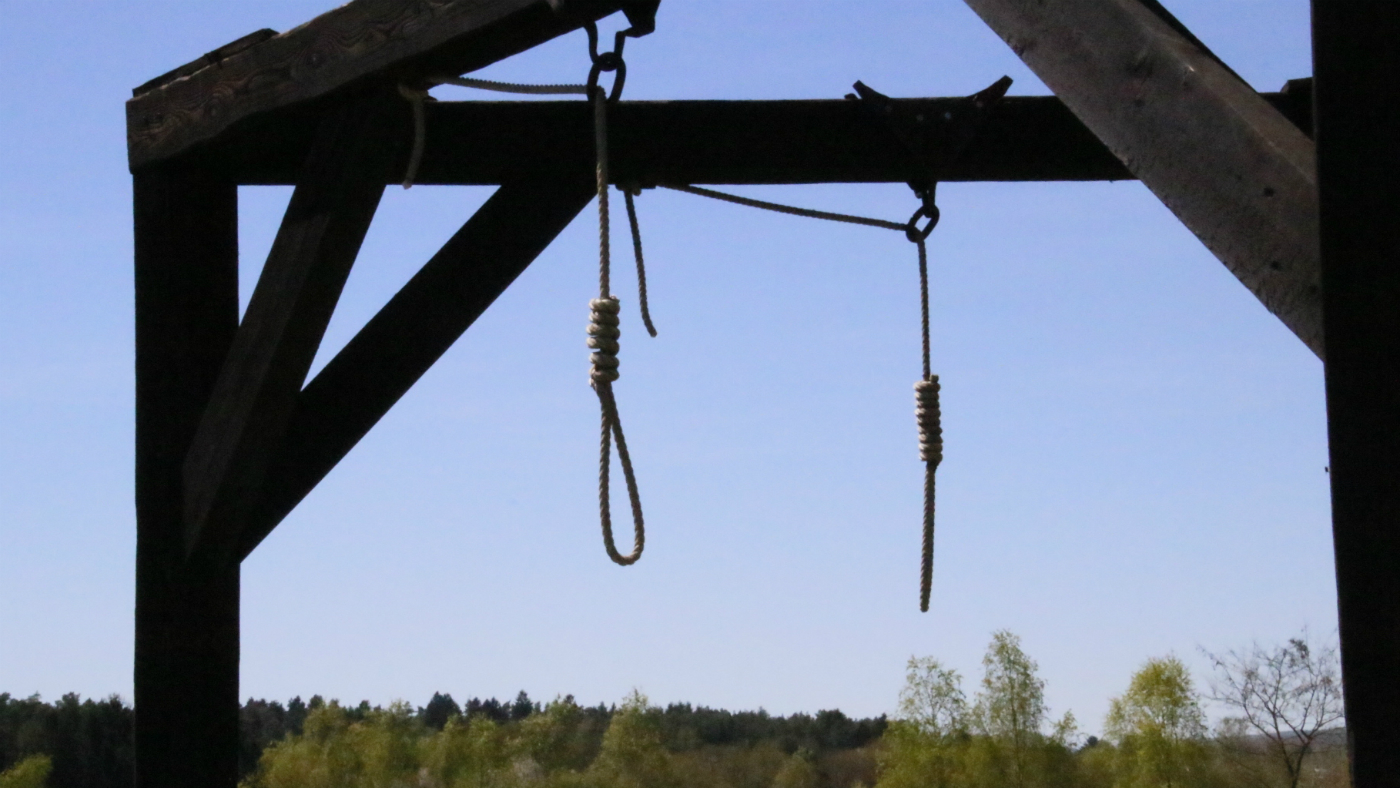Sri Lankan government recruiting hangmen as drug war escalates
Executioners needed as President Maithripala Sirisena ends moratorium on capital punishment

A free daily email with the biggest news stories of the day – and the best features from TheWeek.com
You are now subscribed
Your newsletter sign-up was successful
The Sri Lankan government has launched a recruitment drive for hangmen with “excellent moral character”, amid plans to lift a decades-old moratorium on capital punishment.
President Maithripala Sirisena told the nation’s parliament last week that he aims to bring back the death penalty for drug traffickers within the next two months, as part of a hard-line programme to combat drug trafficking.
State-run newspaper the Daily News is now running a recruitment advertisement for “the post of Executioner of the Department of Prisons”, with a monthly salary of 36,310 rupees (£158), which is above average for a government job. The ideal candidate is described as a male Sri Lankan national aged between 18 and 45, with both “excellent moral character” and “mental strength”.
The Week
Escape your echo chamber. Get the facts behind the news, plus analysis from multiple perspectives.

Sign up for The Week's Free Newsletters
From our morning news briefing to a weekly Good News Newsletter, get the best of The Week delivered directly to your inbox.
From our morning news briefing to a weekly Good News Newsletter, get the best of The Week delivered directly to your inbox.
“We never know if the government will resume the death penalty, but we want to hire two hangmen to fill vacancies and be ready if the government wants to execute drug traffickers,” prison service spokesperson Thushara Upuldeniya told Reuters.
However, government recruiters may have their work cut out for them. The BBC reports that the last hangman “resigned in 2014 after seeing the gallows for the first time and going into shock”, while another was “hired last year but never turned up for work”.
The last execution in Sri Lanka was in 1976. Although death sentences have been handed down since by the nation’s courts for murder and drug trafficking convictions, these sentences have been automatically commuted to life in prison.
Sky News reports that the decision to resume hangings was “inspired by Philippines President Rodrigo Duterte’s war on drugs”, which has left thousands dead. During a state visit to the Philippines in January, President Sirisena praised Duterte’s brutal crackdown as an “example to the world” .
A free daily email with the biggest news stories of the day – and the best features from TheWeek.com
Authorities “fear Sri Lanka is becoming a transit hub for the narcotics trade in Asia”, after seizing more than 1,500kg (16.5 tonnes) of cocaine in 2017, adds the broadcaster.
But Giada Girelli, a human rights analyst with the Harm Reduction International drug policy research group, said there is no evidence that carrying out executions would serve “as an effective deterrent to drug use or trafficking”.
“It will buck the global trend away from use of the death penalty and only serve to harm the health and human rights of Sri Lanka’s citizens,” she said.
Biraj Patnaik, South Asia director at Amnesty International, added that “there is no place for the death penalty in a civilised society”.
-
 How to Get to Heaven from Belfast: a ‘highly entertaining ride’
How to Get to Heaven from Belfast: a ‘highly entertaining ride’The Week Recommends Mystery-comedy from the creator of Derry Girls should be ‘your new binge-watch’
-
 The 8 best TV shows of the 1960s
The 8 best TV shows of the 1960sThe standout shows of this decade take viewers from outer space to the Wild West
-
 Microdramas are booming
Microdramas are boomingUnder the radar Scroll to watch a whole movie
-
 Epstein files topple law CEO, roil UK government
Epstein files topple law CEO, roil UK governmentSpeed Read Peter Mandelson, Britain’s former ambassador to the US, is caught up in the scandal
-
 Iran and US prepare to meet after skirmishes
Iran and US prepare to meet after skirmishesSpeed Read The incident comes amid heightened tensions in the Middle East
-
 Israel retrieves final hostage’s body from Gaza
Israel retrieves final hostage’s body from GazaSpeed Read The 24-year-old police officer was killed during the initial Hamas attack
-
 China’s Xi targets top general in growing purge
China’s Xi targets top general in growing purgeSpeed Read Zhang Youxia is being investigated over ‘grave violations’ of the law
-
 Panama and Canada are negotiating over a crucial copper mine
Panama and Canada are negotiating over a crucial copper mineIn the Spotlight Panama is set to make a final decision on the mine this summer
-
 Why Greenland’s natural resources are nearly impossible to mine
Why Greenland’s natural resources are nearly impossible to mineThe Explainer The country’s natural landscape makes the task extremely difficult
-
 Iran cuts internet as protests escalate
Iran cuts internet as protests escalateSpeed Reada Government buildings across the country have been set on fire
-
 US nabs ‘shadow’ tanker claimed by Russia
US nabs ‘shadow’ tanker claimed by RussiaSpeed Read The ship was one of two vessels seized by the US military